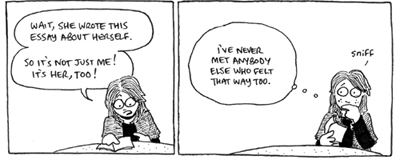IMPORTANT NOTICE: This post is several years old and may not reflect the current opinions of the author.
Jeffrey McKee was convicted of raping two women, but received a lighter prison sentence because his victims were prostitutes.
Luckily, there are people in the Washington state judicial system who aren’t total fuckwits.
Read the article for the full story, but here are a few notable quotes that illustrate the persistent sexism and victim-blaming in public attitudes towards sexual violence. Sure, society says, we’ll protect the victims of rape – but only if you’re the right kind of victim.
Superior Court Judge Douglas McBroom said the sex acts were against the victims’ will only because they didn’t get paid,
“Only because they didn’t get paid” and they didn’t want to. Payment may be a necessary part of consent for sex workers to engage in sex, but it is by no means the only part. If you insist on equating sex workers with any other kind of worker (without regard to the social context in which they perform this work), then you must also acknowledge that a worker who is kidnapped and held at gunpoint while robbed is the victim of more than simple robbery.
and prostitutes were “a far cry from the innocent rape victim” that lawmakers envisioned when deciding the severe penalties for the crime.
Ah, yes, the “perfect victim” idea. As if the so-called “innocence” of a person determines the nature and extent of the crime. Funny, I thought the behavior of the perpetrator determined that.
In its ruling Monday, the appeals court called the judge’s reasoning behind the sentencing “a reflection of his personal opinion and subjective belief that raping a prostitute is not as brutal as raping a woman who ‘did not willingly start off ready to perform a sex act.'”
Scary, isn’t it? If you are – perhaps, if you ever have been – “ready to perform a sex act,” that makes you less of a victim, in the eyes of Judge Douglas McBroom. Ready to have vaginal sex, but your partner forces anal sex on you? Not a victim. Ready to have sex with one guy, but he calls in his buddies and they force themselves on you? Not a victim. Experience pain or discomfort during sex, but your partner doesn’t stop? Nope, not a victim.
The three-judge panel also rejected many of McKee’s claims, including an assertion that his crimes were more like robbery than rape, and that prostitutes are not as traumatized by rape as other victims.
So the perpetrator attempts to belittle his crime by attacking the victims again … Yeah, that’s an indication that you want to give this man a shorter prison sentence and unleash him upon society sooner. *eyeroll*
The fact that this ignorant, sexist decision was overruled by the appeals court is heartening – as is the fact that the news article itself is written intelligently. Here are the names of people worth listening to, and worth supporting – in elections, with donations, what have you.
Appeals Court Judge William Baker, the man who threw out the inadequate prison sentence, says that, The fact that the women “may have been willing to have sex for money does not trivialize the trauma of being raped at gunpoint.” It’s sad how rare it is that you actually hear public officials say something that makes so much sense.
Eboni Colbert, co-executive director of Communities Against Rape and Abuse, says, “It’s kind of scary to think that who I might be as a victim will impact how the criminal justice system chooses to punish the perpetrator.” CARA, if you haven’t heard of it, is a wonderful local anti-abuse organization, and I’m glad they were highlighted in the article.
The article (whose author is Tracy Johnson), also noted that prostitutes are often seen as disposable and deserving of whatever happens to them — even though abuse or other desperate circumstances may have led them into selling sex in the first place.
“Everyone deserves the protection of our laws,” Deputy Prosecutor Andrea Vitalich said. “The failure to protect the most vulnerable in our society is a failure to protect everyone.”
That’s really all you need to know in relation to sexual violence against prostitutes. Regardless of how you feel about sex work – whether you think it’s empowering, oppressive, or somewhere in between – it makes absolutely no difference as to whether a person was raped or not, nor how much of a criminal the rapist is. I’m not sure why there’s even a question on this issue – except, of course, that I know we still labor under the malicious lie that a woman who’s sexual is fair game for sexual exploitation.
I’m sending emails to the author of the article and the editor of the newspaper, to let them know that their intelligence regarding this crime is much appreciated, especially in light of the shameless misogyny of Judge McBroom. I’d encourage other people to do the same.

